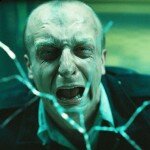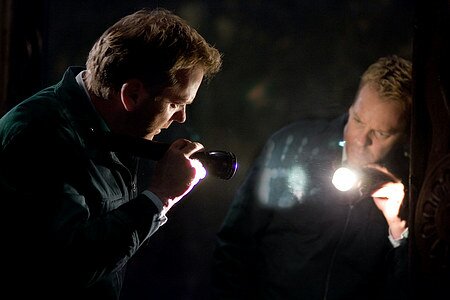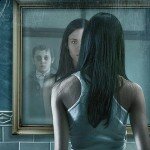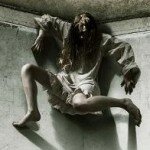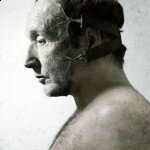Senseless amounts of gore has been the core ingredient to most horror films made within the last half-decade. One man you can blame for such nauseating visuals is Alexandre Aja, responsible for the bloody 2006 remake of The Hills Have Eyes. Within the opening minutes of Aja’s latest horror film Mirrors, it becomes apparent that he hasn’t grown out of his obsession with showing peoples insides sprawled across the floor. Whilst the serious undertone present in The Hills Have Eyes partially redeemed its use of excessive gore, Mirrors ultimately deflects any attempts to establish a discernible plot and instead concentrates on showing gruesome visuals, in the absence of a credible atmosphere, for the sake of a cheap scare.
Branching out from doing straightforward remakes, Aja instead opted to extensively re-write the Korean horror film Into The Mirror. To work out how to do this, he must have picked up a copy of ‘Horror Movies for Dummies’. If the chapter on ‘plots’ had a checklist, Aja made sure Mirrors had all of the boxes ticked. You have a prelude scene where an anonymous victim meets his doom, a haunted building where it all unfolds and, naturally, a back-story that involves a psychiatric hospital. Caught in the middle of the cliché is ex-detective Ben Carson (Kiefer Sutherland), whom lands a job as the night watchman at a burnt-out department store in the middle of New York. Of course, the sprawling mirrors within the dilapidated building show more than just a reflection. When Ben starts hearing and seeing disturbing things in the mirrors, things which begin to alter his perception of reality, he desperately sets out to stop the evil forces at play before it costs him his life.
The closer you look into Mirrors, the more noticeable its flaws become.
Alexandre Aja must have thought that just because he’s basing a film around mirrors acting irrationally, he can proceed to remove logic from all aspects of the film. Scenes are frequently jarred together and plot points are left hanging without any satisfying explanation, especially in the films maddening “twist” conclusion. Despite the film blending a complex assortment of plot devices taken from every horror movie before it, the mystery surrounding the haunted mirrors is solved well before the concluding stages of the film and done so with relative ease, making you question why you’re still watching an hour in. Without an immersive story allowing for the gradual build up of suspense, it becomes difficult to use anything but gratuitous violence to scare the audience…and doesn’t Aja know it. Where most directors would cut away from the violence once it has been implied, Aja frequently provides the literal meaning of ‘cut-throat’ and shows each killing in all its gorey. Plot wise, these visuals are completely unnecessary and, unlike Eli Roth’s Hostel or the seemingly never ending Saw series of films, it doesn’t occur consistently enough to be the sole reason why the film exists. If the film toned down the gore, it might have found a wider audience.
Aside from Aja’s expert knowledge of how the human anatomy reacts to sharp objects, Mirror’s is an uninspired mix of visual effects. Most of the time, Aja successfully employs cinematographic tricks to bring to life the mirror’s deceptive behaviour. But as the film reaches its final stages where things get a bit more freaky, the special effects introduced are noticeably below par. For example, in a scene where a character is trapped in the mirrored dimension and can be seen through the reflection, one could reproduce the same effect given ten minutes and a basic understanding of Photoshop. It’s as though the film was rushed out the door before post production had a chance, subsequently taking away what little credibility the film retained throughout the first few acts.
Ben’s predictable descent into insanity is portrayed convincingly enough by Kiefer Sutherland, showing as much emotion as possible within the limitations of the script. Although, as a good episode of TV’s 24 proves, Sutherland is capable of producing a far more engaging character and consequently makes it hard to truly commend his performance in Mirrors. It is, however, nice to see Sutherland fighting his own battle and not heroically trying to save the world in a day. There’s not much to like about Paula Patton as Ben’s ex-wife Amy, whom delivers dialogue like she’s reading from a menu. This would have been tolerable hadn’t she taken helm of the movie during the final act where she spends her screen time time trying to protect her two kids, portrayed by young upcommers Cameron Boyce and Erica Gluck, from their own reflections. Yes, it plays out just as stupidly as it sounds.
Conclusion:
Aside from an admirable effort by Sutherland, Mirrors is ultimately smeared by a daft script, bland visual direction and the intermittent use of extreme gore.You certainly won’t be reflecting back on this trip to the cinema.
 Follow the author Anders Wotzke on Twitter.
Follow the author Anders Wotzke on Twitter.
